Are you having trouble remembering where you put your car keys or smartphone? Do you sometimes forget to pick up something at the grocery store? Did the appointment with your specialist you had planned a week ago slip your mind? Having a poor memory can make even everyday activities extremely difficult and frustrating.
If you are one of the many people who have trouble remembering things, don’t worry. In this article, you will learn some simple yet effective ways to sharpen your mind and boost your memory. Numerous experts have conducted extensive studies on what exactly memory is, how it works, and how things can go wrong. Research continues to examine the usefulness of memory, and in the end, it has been concluded that memory makes a human being truly human, however, this idea is often misunderstood by ordinary individuals.
Your memory can be compared to a small file organizer, filled with numerous individual documents and folders that contain everything you think, experience and remember. Basically, it stores all the information you see or hear on a daily basis. It can also be called a neural supercomputer with unlimited space and performance. Experts say that the study of memory is much more subtle and complex than previously thought.
For general memory problems, however, you can adopt some simple, natural home remedies and make healthy lifestyle changes. Most of these remedies are readily available and have positive effects if used correctly, consistently, and over a long period of time.
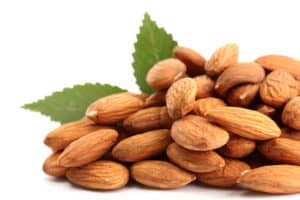
1. Almonds
When you were growing up, your parents probably wanted you to be at the top of your class. They were willing to do anything to make sure you did your homework and passed your tests. In fact, many parents instruct their children to eat almonds, claiming that they will help improve their memories.
There have been many discussions and debates about how almonds can positively enhance your mental capacity and aid in memory retention. Fortunately, nutrition experts and studies have answered the question of whether they actually improve brain function, or if it is just another old wives’ tale. There is some science behind this brain food called almonds. Almonds contain a wealth of healthy nutrients that can improve the overall well-being of your brain, as well as strengthen specific mental functions. Almonds are known to be quite rich in lean proteins. These proteins provide a much-needed energy boost, as well as repair brain cells; thus improving the brain’s thinking and memory capabilities.
Almonds contain the mineral zinc, which is known to keep the body’s immune system functioning. Zinc is an antioxidant nutrient that fights harmful free radicals in your bloodstream. These free radicals easily attack and destroy brain cells in the absence of zinc.
Additionally, almonds also contain nutrients like vitamin B6, which helps maintain your mental well-being. They also contain vitamin E, which slows down the aging of brain cells that negatively affect memory. The omega-3 and omega-6 unsaturated fatty acids in almonds enhance brain function, and the magnesium in almonds helps ensure that the nerves in your brain are strong.
Because of all the nutrients found in almonds, this fruit is believed to be one of the most highly nutritious brain foods available. Add this nut to your meals and snacks, and you may see a difference in your mental alertness over time. You can also try almond milk, almond butter, and almond paste in your recipes and meals.
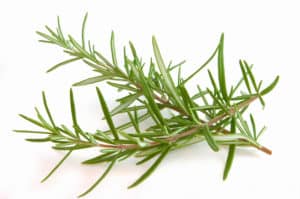
2. Rosemary
Rosemary (Rosmarinus officinalis) is a perennial woody plant that is found in the Mediterranean area. It is a single species in the mint family, but has less needle-like leaves that look and smell like pine. Rosemary is one of the oldest known medicinal herbs. Both the leaves and flowers have been used for medicinal purposes for many years.
There have been some interesting studies on the effects of rosemary on cognition and memory. One study gave healthy adults a battery of psychological tests. Some participants performed these tests in a room filled with rosemary essential oil, others in a room filled with lavender, which is considered an essential oil. If anyone noticed the scent in their room, they were told it was coming from a previous meeting and that they were being tested for the cognitive effects of vitamin water. Those in the rosemary group scored significantly higher on memory, processing speed, alertness, and attention than those in the control and lavender groups.
Scientists have discovered that the most prominent active compound in rosemary, plasma 1,8-cineole, causes an increase in acetylcholine, the neurotransmitter responsible for memory and learning. Medications used to treat Alzheimer's disease work by inhibiting the breakdown of acetylcholine. Interestingly, rosemary essential oil is a great way to deliver 1,8-cineole directly to your brain cells. After inhaling rosemary essential oil, the 1,8-cineole molecules go straight from your bloodstream to your brain cells, bypassing your liver for processing. Some memory lapses are considered a typical sign of aging. Rosemary protects your brain in several ways to minimize damage and slow the rate at which your brain cells age. It significantly increases blood flow to your brain cells, which in turn delivers more oxygen and nutrients to your cells.
Rosemary contains carnosic acid, a powerful cellular nutrient that protects the brain from damage. Free radicals are normally unbound oxygen particles that accelerate the aging process and contribute to neurodegenerative diseases like Alzheimer's.
Rosemary can be used in cooking as a seasoning or as a tea. Alternatively, rosemary supplements can be taken in capsule form or as a liquid concentrate. These liquid concentrates are available in an alcohol or oil base and are intended for internal consumption. It is important to note that liquid rosemary concentrate is different from rosemary essential oil. Essential oils are highly concentrated, and rosemary oil is one of the many essential oils that should never be ingested.
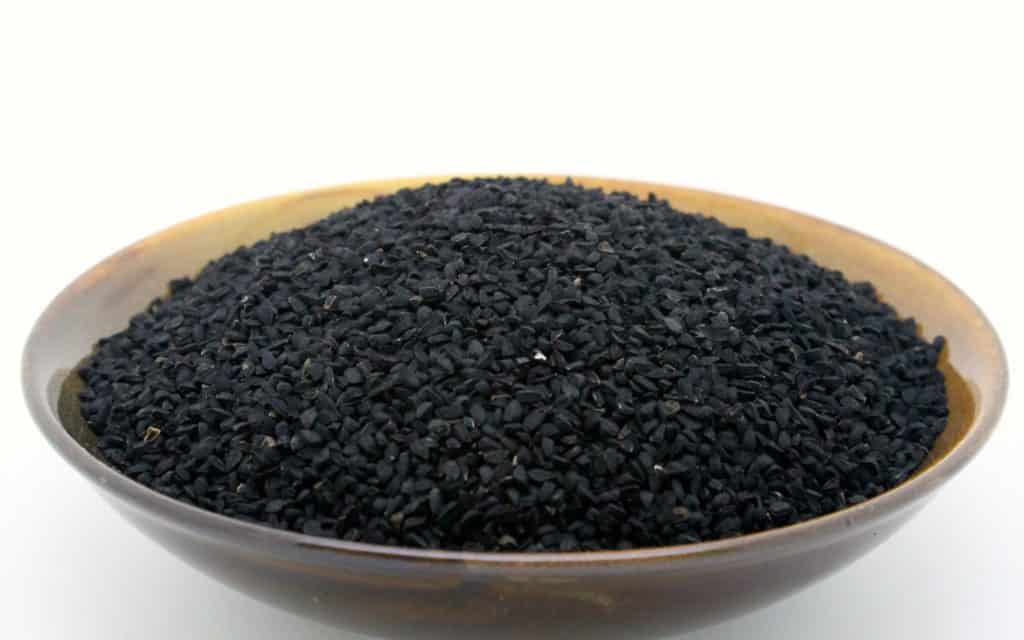
3. Black Seed
Meet the new super seed, black cumin, which is gaining traction on the wellness scene. This black seed has some serious mental sharpening properties that were recently published in the journal Ethnopharmacology Journal.
The study involved 20 men who took just two 500 mg tablets of pure ground black seed powder every night for nine weeks. These men, all in their 50s, performed remarkably better on measures of memory, attention, and perception than their 20 counterparts who received a placebo. Black cumin seeds have antioxidant, neuroprotective, and anti-inflammatory properties that are responsible for their brain-boosting abilities. According to Muhammad Shahdaat Sayeed, who is a professor at the Asia-Pacific University in Bangladesh, “When the neurotransmitters responsible for memory repair are degraded, normal memory is affected.”
Kevin Spelman, Ph.D., an established medical expert in memory enhancement, reports that black cumin seeds are rich in essential oils, which are linked to brain stimulation and can slow the breakdown of the neurotransmitter known as acetylcholine.
Heart, liver, and kidney function were not affected by black cumin seed supplementation in the brief analysis, joining other clinical trials that claim black cumin is safe for human consumption.
Black cumin seed is not yet available in tablet or capsule form; however, Sayeed mentions that around the world, a few drops of black cumin seed oil are commonly mixed with honey to minimize the strong, bitter taste. Disregarding the unpleasant taste, if further research yields similar results, consuming black cumin could be a healthy brain food.
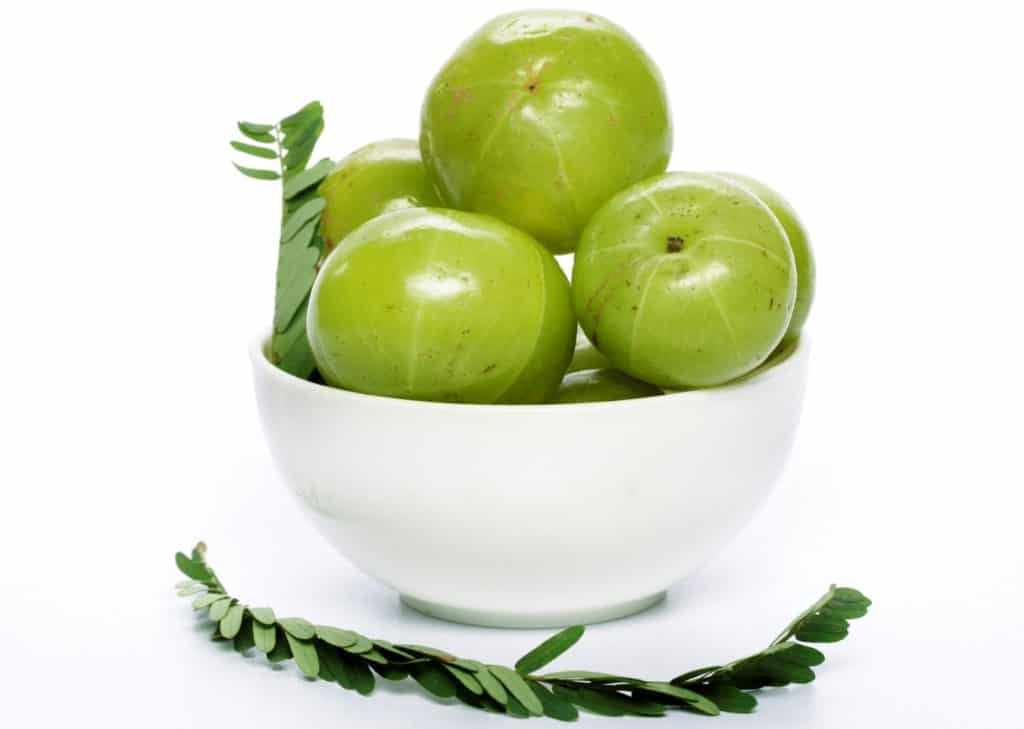
4. Amla
Amla, sometimes called Indian gooseberry, has been used in Ayurveda to improve memory power while strengthening the nervous system. Hence, amla is often mentioned in the treatment of mental conditions or problems related to the nervous system. Its ability to promote memory control and enhance the quality of the sensory system is enough to make Indian gooseberry a popular home remedy for improving memory. A recent study published in the journal Journal of Physiology and Behavior concluded that the preparation of Ayurvedic anwala churna, also known as amla churna, can significantly improve memory and help in controlling Alzheimer's disease. Due to its high vitamin C content and cancer-preventing properties, amla can easily be used as a good immune support.
While Indian gooseberry is excellent in treating problems related to the nervous system, it can also treat various conditions related to the internal organs, such as fatty liver disease.
Indian gooseberry can help keep your memory intact and also slow down the progression of memory loss. Here’s how to use Indian gooseberry to improve memory:
- Take one to three teaspoons of amla three times a day for two weeks.
- Grind one teaspoon each of Indian gooseberry root powder and white sesame seeds into a powder. Add one teaspoon of honey to this mixture. Consume this once daily for two weeks.
This remedy to improve mental cognition and memory is inexpensive and easy to prepare, so give it a try. Plus, it’s natural and doesn’t cause any unwanted side effects.

5. Brahmi
Brahmi, which is an Ayurvedic herb, can provide significant benefits to the brain. It works as a brain tonic, has antioxidants, and offers a neuroprotective impact on your brain.
In 2008, a study published in the Journal of Alternative and Complementary Medicine concluded that Brahmi, known scientifically as bacopa monnieri, improved word review memory and significantly reduced depression and anxiety. The study focused on adults aged 65 and over. Here's how to use it:
- As a Healthy Drink: Mix one-fourth to one-half teaspoon of Brahmi powder in some warm water with a touch of cardamom. Drink it a few times a day. You can also add one tablespoon of clarified butter, popularly called ghee.
- As an Extract: Another option is to use this herb as a supplement by taking 300 milligrams (mg) of standardized extract daily. This is a naturally occurring herb from India with a long history of use in the Ayurvedic tradition for treating a variety of problems, especially those involving anxiety and poor memory. It has spread throughout the world in its use and is currently being advertised in Western countries as a memory-enhancing agent. A number of studies have shown that the herb contains several active ingredients, including several alkaloids and saponins. The most potent are the steroidal saponins, Bacoside A and B. More scientific studies on the effects of Brahmi are needed for more conclusive information; however, there are some studies on the behavior of rats. Studies have shown that Brahmi improves the rate of learning in discrimination tasks and avoidance tasks. Brahmi improves brain retention, which has been shown to aid learning. It could also be used to treat amnesia, which can stimulate immobilization and electroconvulsive shock. The second study involved the administration of the extracted bacosides, A and B, and suggests that they impact cholinergic systems. Brahmi has recently been reported to have antioxidant effects in the frontal cortex of rats. The aim of this review was to analyze the impacts of a Bacopa monniera concentrate on subjective ability. Based on the behavioral studies in rats described above, it is promising that it improves the performance of tasks that require their long-term memory. Due to the inconclusive results, be sure to consult your doctor before using it.

6. Fish Oil
Eating oily fish such as mackerel, salmon and trout can significantly boost your memory capabilities, according to researchers. A recent study found that an unsaturated fatty acid found in fish and seafood can help your memory function better. Researchers are now highlighting the importance of a fish-rich diet for maintaining mental health and warding off the onset of dementia.
Over a six-month period, 176 adults were given supplements containing DHA, an omega-3 fatty acid found in fish and seafood such as salmon, mackerel, sardines, trout, shrimp and mussels.
To test the participants’ temporal memory and psychological abilities, they also included a placebo group. After treatment, memory, working memory, and working memory speed showed significant improvements. DHA is thought to be important in preventing Alzheimer’s disease, one of the most common forms of dementia. Alzheimer’s disease is characterized by a sharp decline in mental abilities, such as memory and thinking, and is often associated with increasing age. Lead scientist and educator Welma Stonehouse of Massey College in New Zealand reports, “This is the most rigorous study to demonstrate that a DHA-rich supplement can improve some parts of working memory in healthy young adults.”
Stonehouse noted that cognitive abilities appeared to be affected by DHA-rich fish oil, particularly memory and working memory, which are among the most critical elements of your brain for performing many everyday activities, such as working, driving, reading, shopping, concentrating, and playing sports. Keeping your brain healthy and functioning at its optimal capacity is equally critical to maintaining physical well-being and health.
DHA is one of the most concentrated fatty acids in the brain and is known to be found in brain cells. However, since the body cannot effectively produce this unsaturated fatty acid, it is necessary to consume it as a main part of your daily diet.
Researchers have found that people who don't eat enough fish may be harming their brain function. The numbers speak for themselves: The analysis showed that men who took a DHA supplement showed 15% more working memory, while women saw a seven percent change in their memory speed.
Fish has been shown to be a healthy part of a person’s diet, but it’s oily fish in particular that provides the most DHA. If you don’t like fish, you can opt to take a fish supplement. Be sure to ask your doctor for help determining exactly how much you need to take daily.
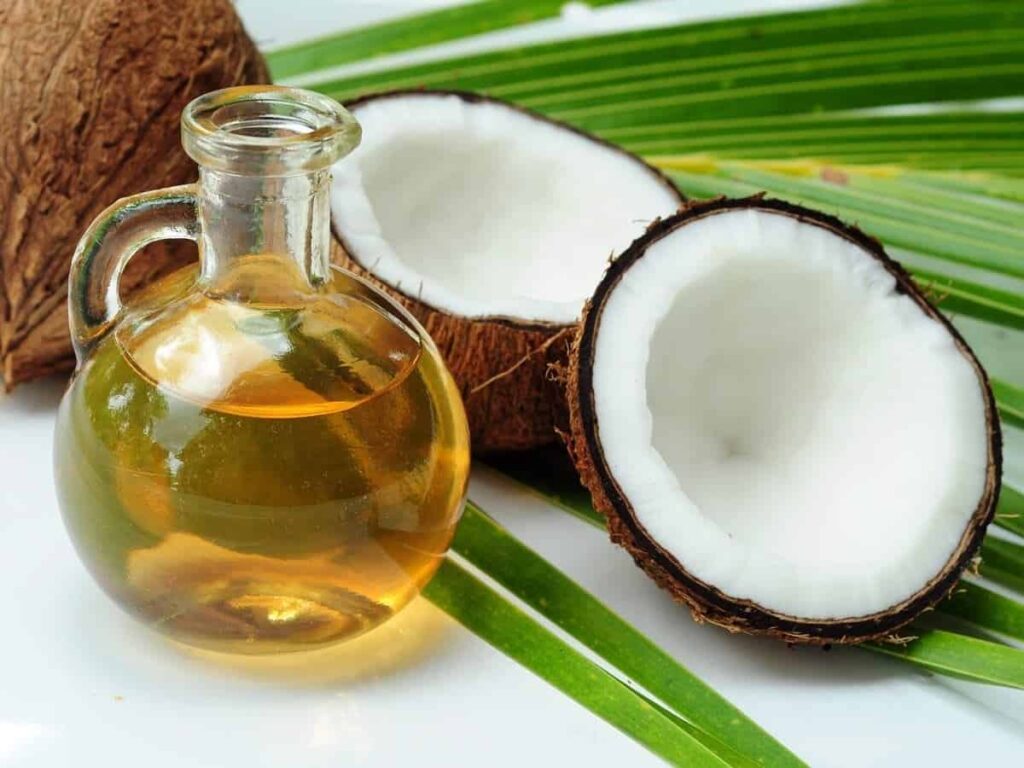
7. Coconut Oil
There’s a significant buzz these days about coconut oil being good for your brain cells. The main claim is that coconut oil is rich in medium-chain triglycerides, or MCTs, which are metabolized in a unique way compared to most other fats. The MCTs in coconut oil break down into ketones, which can be used by your brain cells as fuel. The idea is that giving your brain some extra fuel can help it function better.
Under normal circumstances, brain cells use glucose for energy; however, since the brain is the most important organ for survival, the body has a backup plan. If you run out of glucose, the body starts to make up for it by converting fats into ketones, which are transported to the brain. It’s like having a backup generator for your home. If the electricity goes out, the backup generator kicks in to keep the electricity running.
While they are useful, backup generators are intended to be used in crisis situations until the usual power source is restored. Thus, although they readily use ketones when no other energy source is available, healthy brain cells will primarily burn glucose if it is available.
This means that the way coconut oil provides ketones doesn’t necessarily mean that your brain uses them as fuel. More research is needed to determine the full effects of coconut oil on the mind and memory; however, it is a nutritious and good fat that can provide great health to your body and most likely your mind as well, so give it a try.
You can use coconut oil in a variety of dishes and recipes. It’s a great oil for cooking because it has a high heat capacity. Plus, it’s affordable and easy to find at your local grocery store.

8. Cinnamon and honey
Both cinnamon and honey are helpful in relieving nervous tension and improving memory. Research shows that even smelling cinnamon can improve your memory and subjective ability. This may sound funny, but it’s like using aromatherapy, which has been shown to be effective.
Additionally, eating honey at night before bed can help you avoid nighttime metabolic anxiety. It also promotes rest, which can help improve brain activity and memory. Here’s a great way to use honey and cinnamon to improve your brain:
- Mix a little cinnamon in a teaspoon of local organic honey.
- Try this mixture once a day, at night, for at least a few months. A dose of cinnamon may be the answer for students who want to get better grades, as recent experiments with rats indicate.
Cinnamon helped rats learn complex mazes faster in a test led by researchers at the U.S. Department of Veterans Affairs. They suggest that certain types of cinnamon could be helpful in boosting brain performance. Rats are often used as the best animal alongside humans, as they respond more quickly to experiments.
The study was funded by the VA and the National Welfare Organization to find out whether cinnamon has an impact on brain cells and to support the idea that it may help treat cognitive disorders and also boost memory performance.
Most studies on cinnamon have focused on diabetes. When researchers shifted their focus to the brains of mice, they found that cinnamon enhanced hippocampal plasticity and strengthened the auxiliary reliability of brain cells, improving their ability to learn.
Cinnamon has been shown to significantly improve overall brain function, helping you think faster. You can use cinnamon in many recipes, from cereals and baked goods to drinks and yogurt. It’s a tasty addition to many dishes, but never consume it alone in dried form, as this can cause choking and inhalation, which could lead to lung infections.

9. Ginkgo Biloba
Ginkgo biloba has been used regularly for memory problems for centuries, as it improves blood flow to the brain, helping it function better. It has been found to improve memory and thinking in people suffering from dementia and Alzheimer's. However, according to a study published in the journal Human Psychopharmacology, may not be valuable for improving memory in healthy people.
There is no recommended dosage for this herb, but the general dose is 40 milligrams (mg) three times a day for those with dementia. For healthy people, scientists recommend taking this herb for cognitive development in amounts of 120 to 600 mg per day, but they report that more studies are needed to find more conclusive evidence of its effectiveness in healthy adults.
Be sure to talk to your doctor before taking ginkgo biloba, as it may interfere with other medications and prescriptions.Extra Tips for Better Brain Health
- Maintain a balanced diet. Follow a nutritious eating routine, including vitamins A, B12, C, beta-carotene, folic acid, zinc, iron, calcium and magnesium.
- Be careful with fats. Avoid high-fat fast foods and replace bad fats with good fats, such as olive oil and fish.
- Include natural herbs, teas and spices in your daily meals. Use basil, turmeric and black pepper in your favorite recipes, as they help with memory. You can drink green tea as it is rich in cancer prevention agents.
- Exercise your brain. Do daily brain activities, such as solving Sudoku or crossword puzzles.
- Use memory tools. Use lists and other mental aids to help you remember things more easily.
- Practice physical exercise. Participate in physical activities, as this increases oxygen to your brain cells and keeps your nerve cells healthy.
- Get adequate rest. Lack of sleep limits your brain and prevents it from functioning at full capacity.
- Expose yourself to the sun safely. A few minutes of sunlight can improve your brain function by providing vitamin D. Be sure to limit your sun exposure to the early morning and late afternoon hours, when the rays are not as intense and damaging to your skin.
- Face your stress. Write in a journal, talk to a close friend, and take breaks to keep stress from affecting your mind. There are many things you can do to keep your brain healthy and sharp. Be sure to follow these tips, but if after a while you find that they aren’t working, make an appointment with your doctor. A proper diagnosis and treatment plan can be helpful for many people.




